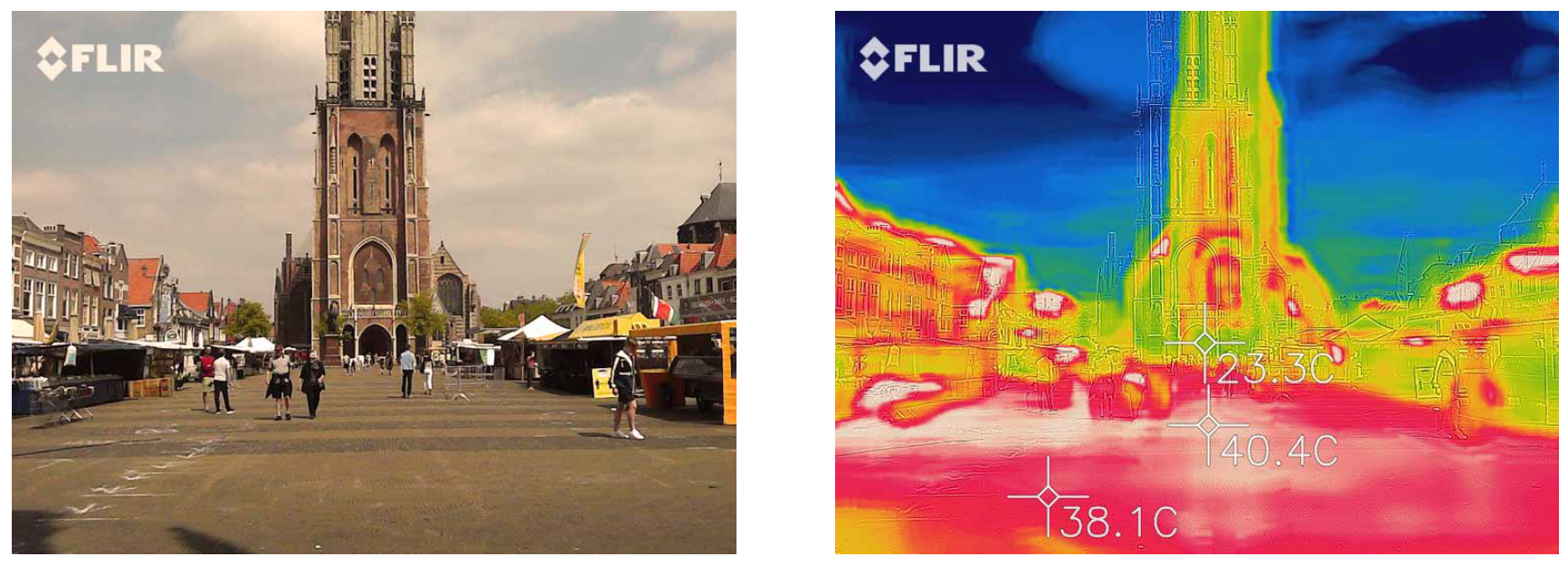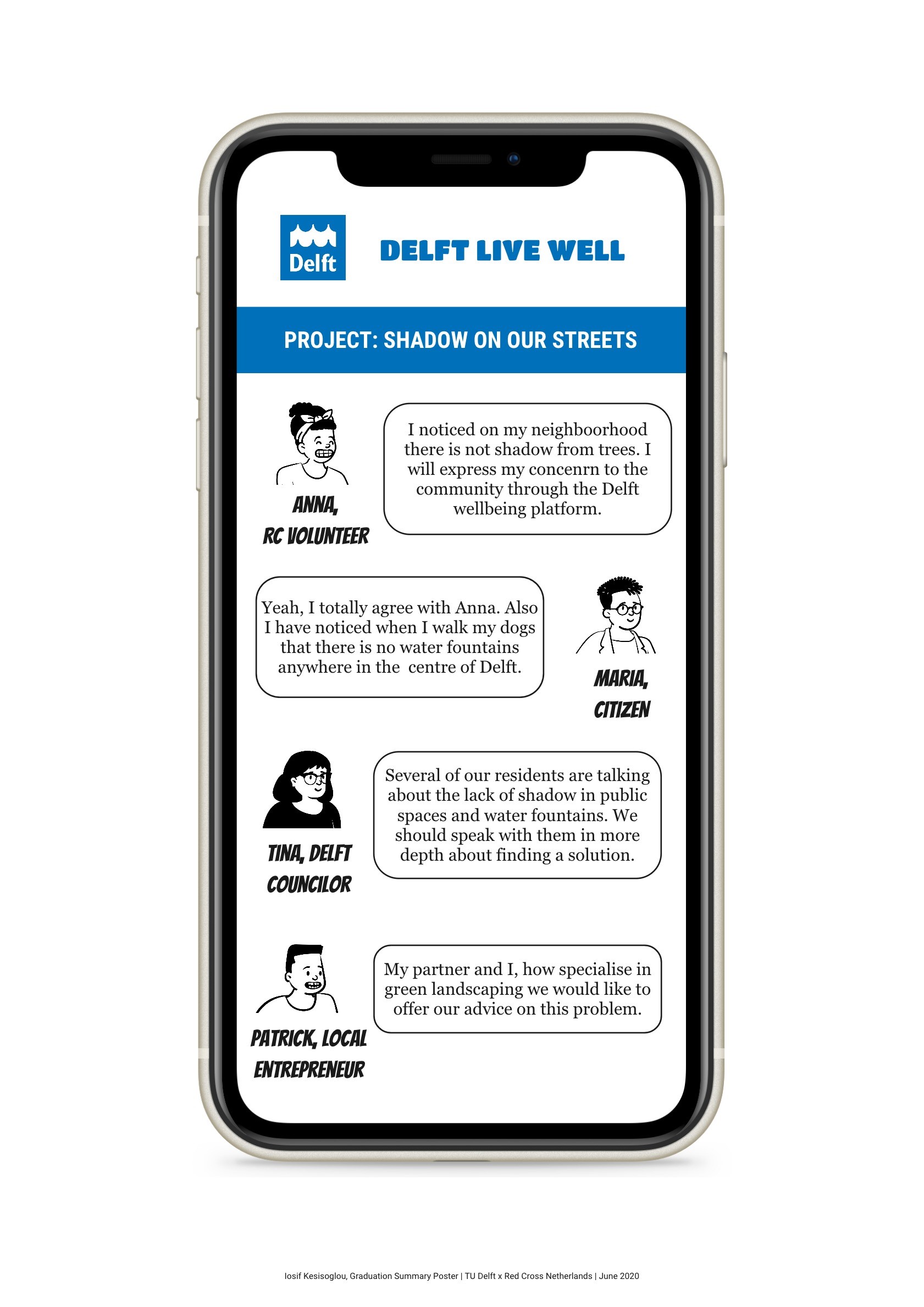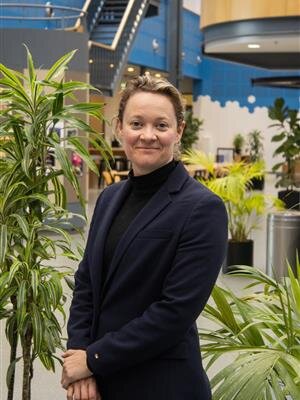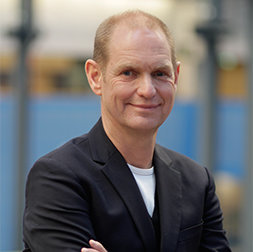Design for Urban Heatwaves
With the effects of climate change manifesting themselves in our society more each year, urban heatwaves are a new phenomenon the Netherlands have to deal with. They do not leave a trail of visible destruction like earthquakes, tsunamis and pandemics. Instead, these crises are ‘silent-killers’, where periods of excessive heat and high humidity hit vulnerable groups in cities, such as the elderly, especially hard.
The Netherlands Red Cross, in collaboration with the International Red Cross, are increasingly focused on prolonged periods of excessive heat in city environments as a humanitarian problem. In this unique KIEM project, design researchers of TU Delft team up with the Netherlands Red Cross to focus on developing a co-creation approach to design for adaption and community resilience to the phenomena of urban heatwaves. Because heatwaves affect cities as a whole, an ecosystem approach is required. However, it is often unclear how stakeholders act or are governed within ecosystems.
Design for Urban Heatwaves aims to yield the following results:
- Initial knowledge sharing workshops, resulting in the identification of complementarities between the parties leading to;
- Co-creation sessions including mapping the city ecosystem (during urban heatwaves) leading to design interventions for adaptions that initiate broader socio-technical transitions toward liveable cities;
- A strong foundation for a following project proposal that include wider selection of multiple parties.
The project has developed two mutual yet exclusive design concepts that can address the increasing concern of urban heatwaves:
- “See the heat, Solve the problem”: Making use of thermal imaging to give the Red Cross volunteers ‘super-powers’ to map out how heat affects urban settings. From these intelligence, the Red Cross can make community building interventions to reduce heat-build up in urban spaces while driving reform of urban planning with city/municipalities.
- “Stories from the field”: People are simply not aware how dangerous urban heatwaves can be. This lack of awareness is also present at a policy level, where policies that clearly define and acknowledge heatwaves are limited. Stories from the field aims to collect stories of how urban heatwaves effect citizens through the eyes of Red Cross volunteers and make this accessible to policy makers, private organisation and other interested parties through a democratic web platform.









